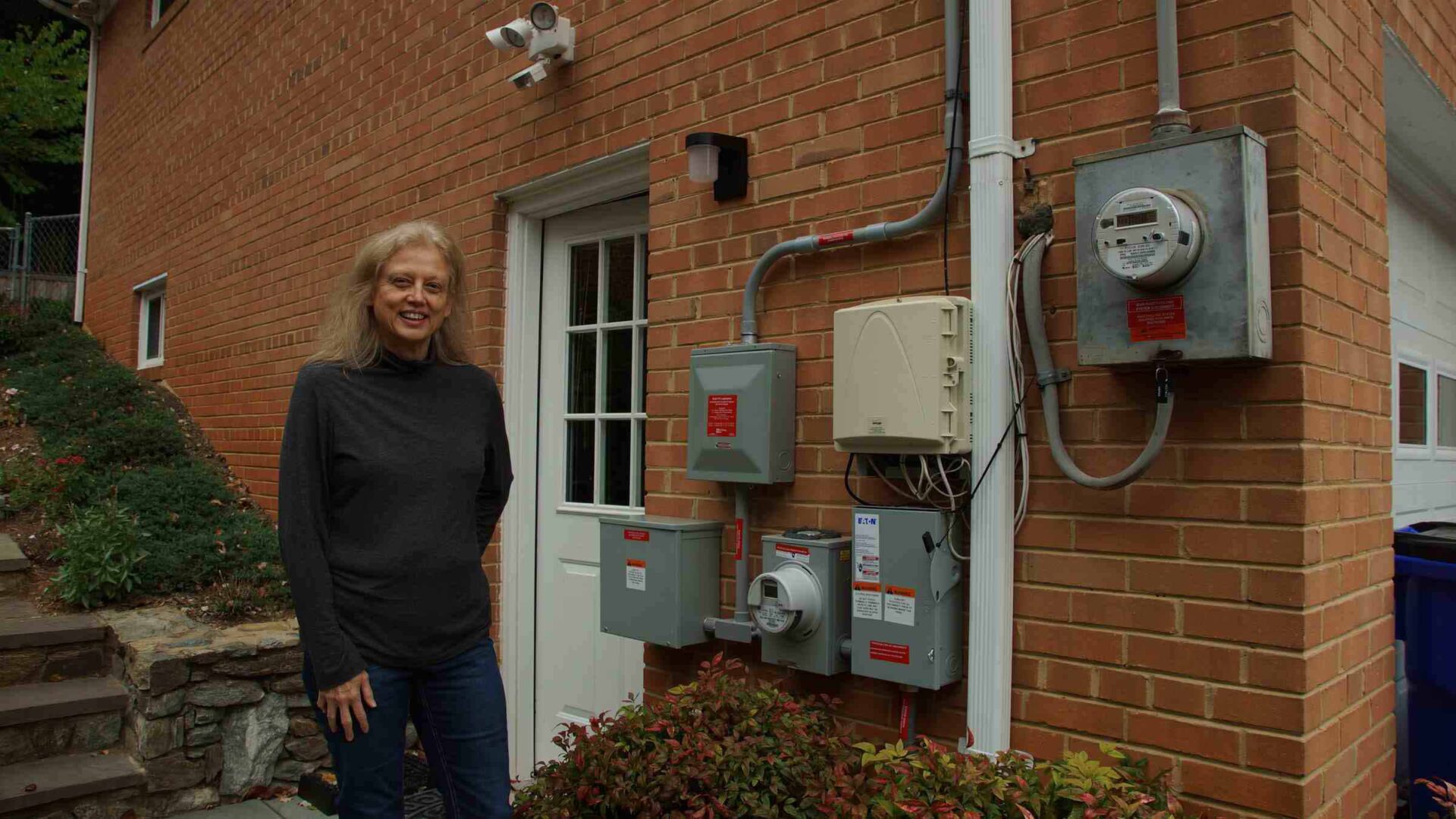Net metering in West Virginia
- Factsheet

What is net metering?
Net metering enables households and businesses to generate their own electricity through solar, then feed their excess power back into the local electric grid. Current rules allow West Virginia consumers to be credited for that surplus power at a fair market rate.
In other words, when you make more energy than you use, you get a credit (equal in value) on your next month’s electric bill. It’s a good way to help consumers save money, and make electric service more reliable for everyone!
Current net metering rules in West Virginia
System specifics include:
- System capacity limit: Depends on utility
- Monthly excess generation credit rate: Full retail
- Annual excess generation credit rate: credit rolls over indefinitely
- State-wide net metering cap: 3% of previous year’s peak demand
- Applicable Utilities: All utilities
- Policies expanding net metering: Aggregate net metering
- Additional barriers: Not applicable
West Virginia Code §24-2F-8, amended by House Bill 2201, establishes the rules of net metering in West Virginia. All residential customers of investor-owned utilities (IOU), municipal utilities, and electric cooperatives with system capacity no greater than 25 kW and at least $100,000 in general liability insurance are eligible to net meter.
The state’s total net metered capacity is capped at 3% of the previous year’s peak load capacity.
System capacity limits
Investor-owned utility with 30,000 customers or more
- Residential: 25 kW
- Commercial: 500 kW
- Industrial: 2 MW
Investor-owned utility with fewer than 30,000 customers, municipal utilities, electric cooperatives
- Residential: 25 kW
- Commercial: 50 kW
- Industrial: 50 kW
Billing and credit
Utility customers with net metered systems will be credited for each kilowatt produced by their system and each month will be billed for the number of kilowatt hours they used, minus the number of kilowatt hours generated. If your generation exceeds your usage for a given month, you will receive a credit for each excess kilowatt hour, to be applied in later months when you generate less electricity than you consume. Credit for excess generation will roll over from month to month indefinitely.
Other types of net metering in West Virginia
Aggregate net metering is allowed in West Virginia. Meters must be located within two miles of the source of generation. Customers are responsible for any costs associated with aggregate metering.
West Virginia resources
History of net metering in West Virginia
- January 2015: The West Virginia legislature moved to repeal West Virginia’s Alternative and Renewable Portfolio Standard. This included a repeal of the state’s net metering legislation. Solar United Neighbors of West Virginia worked with other state groups to mobilize citizen response. In a single day, 287 comments were submitted to House and Senate Energy and Judiciary Committee members. Delegate Mike Caputo received more than 90 emails in three hours. The organized response to this action led lawmakers to preserve the state’s net metering legislation
- March 2024: In early 2024, FristEnergy tried to rewrite the NEM rules in their favor. The Public Service Commission received nearly 1,700 comments from West Virginia solar supporters to maintain the state’s full 1:1 NEM credit, and solar advocacy groups actively intervened in the case alongside a prominent WV solar developer.
Net metering in West Virginia today
While we still firmly believe that residential homeowners should receive full credit for the energy they put onto the grid, we’ve settled on the provisions below to secure solar energy in West Virginia’s future.
*Note: the following is only applicable to FirstEnergy service territory:
- Preserving the 1:1 credit for existing customers for 25 years
- Extension of 1:1 credit for new solar owners if they are ‘interconnected’ by December 31.
- Anyone who submits an application for interconnection to the utility is defined as’ interconnected’. This ensures utilities cannot slow-walk the interconnection process and that people have a sure timeframe to lock in full retail net metering.
- New rates will go into effect January 1, 2025. Residential and commercial solar systems will be credited at 9.3c/kwh. While this is a decrease to the credit rate for residential, it is a more than double the current credit rate for commercial net metered systems.
- The replacement or addition of solar panels or related equipment that results in no more than a 10% or one kW increase in system output (whichever is greater) at a service location that is grandfathered at the retail rate shall not affect the service location’s grandfathered status.
- The addition of behind-the-meter battery storage will not count towards the capacity limit for a net energy metering system so long as it does not export in excess of the generator’s capacity.
- A customer-generator’s addition or replacement of battery storage shall not affect the grandfathered status of the service location.
- NEM credit rates will remain with the address and not the bill holder’s name – this assures the credits remain with the physical location of service in the event of account transfer (for example, if someone were to pass away or move).
Go solar in West Virginia!
Get the latest on solar straight to your inbox.
Fight for your solar rights.
Everyone has the right to go solar. Spread the sunshine nationwide and in your local community by taking action, joining events, and more.